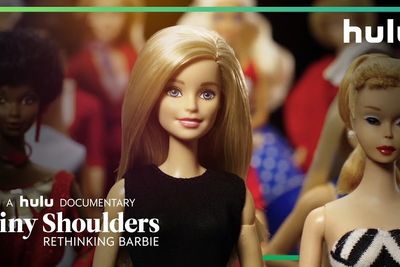
When you think of Barbie, what image comes to mind?
Chances are it was something like a skinny, white, blonde woman with a hot pink convertible and a boring guy by her side who is simultaneously a chef, a flight attendant, and an astronaut. And it's an image that has been criticized throughout the entirety of its sixty years of existing. In 2016, a team at Mattel set out to rework this idea to remake Barbie inclusive in light of the evolving climate of body positivity. But are they too late?
Academy Award-nominated director Andrea Nevins (The Other F Word and Play It Forward) was there to document this entire process, from initial conversation to design to the final execution. Interviewing a slew of feminist thinkers, writers, and activists in the process, we are told a story of how the dolls have influenced generations of girls in gender and role play in both positive and negative ways. We are also forced to look at the impact of what a change for the doll could have for children and for the failing toy company.
The story starts with founder Ruth Handler coming up with the idea for the dolls from watching her daughter, Barbara, play with her paper dolls as if they were adults, as well as her travels to Europe where she saw 11.5-inch dolls that resembled women being sold in pornography stores. Both of these concepts sound a little ridiculous, but they were the images that sparked Handler to draw up the first sketches and create the original prototype for what would soon become one of the most popular toys in the world.
Over the years, we have seen that Barbie has evolved. Eventually, she got more outfits, and a boyfriend, and a lot of friends too. But the conversation in the Mattel offices when we meet the team working for the company is how to improve the brand after the bad press it has increasingly gotten since the start of the second and third wave feminist movements. Women gathered in the streets to yell, "I am not a Barbie doll," and told press sources they would not let their children play with them. This has carried into today, where sales are declining.
The brilliance in the editing of this film comes in the plan to implement "Project Dawn," which will include prototypes for Barbies of all shapes and sizes. While hearing the historical feminist contexts as well as understanding the development of the Barbie brand, we also hear from the current employees of the company: one in design who is spearheading the campaign, and another in charge of press and marketing who is fighting back. Nevins allows us to empathize with each of them equally, so when the team ends up coming together, it's emotionally rewarding. Many in the theater were actually tearing up.
The spectrum of responses to the dolls in the process is also fascinating. While some at the company think it's brilliant, others question whether or not consumers will argue the effort is too little too late, or if they will say mean things about the "curvy" body dolls that will promote bullying, or if parents will be angry that all of the dolls no longer take the same shoe size. It sounds like a metaphor for how we deal with change for anything.
The juxtaposition of the various sides of the arguments for and against the change really give the viewer the opportunity to decide for themselves what they think of the change, whether it is the little girl who is happy to hold a doll that finally looks like how she thinks she will grow up and look, or a bigger woman who scoffs at curvy Barbie for barely resembling a size 12 (smaller than the average American woman), or in the middle and something like most of the Mattel workers where they know this is overdue but it is a step in the right direction.
The documentary captures many angles of this story, which I think most have pigeon-holed when they walk in the door. You will need to drop that thought when you sit down. You will need to open your heart to being sympathetic to a piece of plastic molded with breasts and a butt. Believe me, it sounds wild, but Nevins will eventually have you crying over this thing, and you won't mind.
Running time: 91 min | Director: Andrea Nevins | Featuring: Gloria Steinem, Roxane Gay, Peggy Orenstein, and more!
Find out more about Tiny Shouldershere.
Rachel A.G. Gilman is a writer, a radio producer, and probably the girl wearing the Kinks shirt. Visit her website for more.
POP⚡DUST | Read More About Film…
SATURDAY FILM SCHOOL | Westworld's' New Game Isn't in Our Favor
BOX OFFICE BREAKDOWN | Super heroes and super bad jokes
THE REAL REEL | It Doesn't Matter If You Loved This Film Or Not...